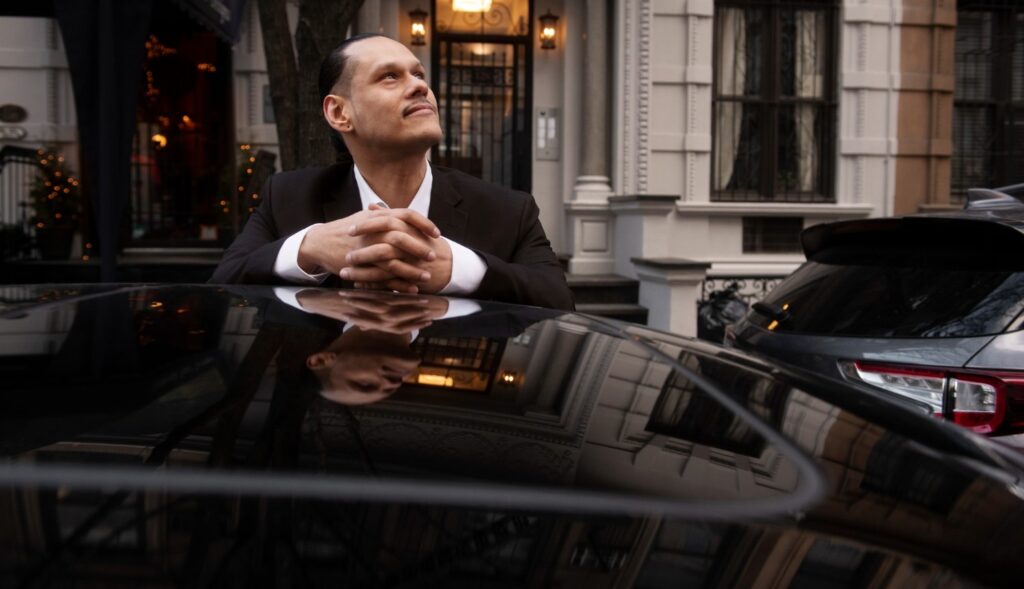
Even if American billionaires get all the attention, the UK is home to its fair share of extremely affluent people. The wealthiest Britons have built massive empires in many different fields, thanks to their entrepreneurial spirit and financial acumen. In order to give you a better idea of the size and trajectory of their achievement, here is a more in-depth look at the five richest people in the UK.
1. The Financial Universe’s Michael Platt, #1
Assets: £14 billion The city of London Renown: Founded BlueCrest Capital Management with other individuals
Michael Platt is the wealthiest individual in the United Kingdom; he became so through his astute analysis of the stock market. Among the biggest hedge funds in the world, his company, BlueCrest Capital Management, oversaw assets worth more than USD 35 billion when it was at its height. The firm’s performance peaked at 153% in 2022, notwithstanding BlueCrest’s 2015 pivot from an external hedge fund to a private family office. The returns have been consistently enormous.
2. The Chemical Baron: Sir James Ratcliffe
Assets: £12.8 billion Hampshire and Monaco Renown: Head of the INEOS Group
The incredible rise of Sir James Ratcliffe, creator and head of the multinational chemical manufacturing behemoth INEOS, is well-documented. After taking out a mortgage on his house in 1992 to buy a BP chemical company, Ratcliffe built INEOS into a multinational behemoth. His astute expansion strategy and financial expertise are on full display in his recent acquisitions and excursions into petrochemical joint ventures in Asia.
3. Sir James Dyson: A Pioneer in Everyday Innovation
Currency: GBP 10.6 billion The place is in the United Kingdom. Noted for: Establishing Dyson Ltd. by him
Sir James Dyson, a persistent innovator and business magnate, became one of the wealthiest people in the United Kingdom after redefining home technology. Dyson Ltd is well-known for its innovative designs and technological uses in commonplace products, such as air purifiers and vacuum cleaners. In spite of obstacles, such as the abandoned electric vehicle project, Dyson persists in making substantial investments in emerging technologies, thus solidifying his standing as an innovative businessman.
4. The Quant King: Alexander Gerko
Income: 8.11 billion British pounds Meeting Place: North London Renown: XTX Markets co-CEO
Although he started out as a quant trader, Alexander Gerko has risen rapidly through the ranks of the financial industry. His 2015-founded XTX Markets has grown into an industry powerhouse in algorithmic trading. As proof of his enormous influence on the trading industry, Gerko’s firm has grown to become the biggest emerging market FX provider in the world. His extensive influence and financial acumen are on full display in his personal holdings in hundreds of companies.
5. Simon and David Reuben: Tech and Real Estate Billionaires
Assets: £7.5 billion Each Monaco and London are the places. Renown for: Wide-ranging investments in technology, real estate, and other fields
Among the many areas in which the brothers Reuben have invested are renewable energy, technology, and real estate. They have successfully sold shares in their data center company, GlobalSwitch, to investors from around the world, which is one of their most famous deals. They have become major players in global markets and have tripled their riches through these astute deals.
Latest

| Rank | Name | 2024 Wealth (£bn) | Source of Wealth | Rise/Fall | 2023 Wealth (£bn) |
|---|---|---|---|---|---|
| 1 | Gopi Hinduja and family | 37.196 | Investors | £2.196bn | £35bn |
| 2 | Sir Leonard Blavatnik | 29.246 | Investor | £0.621bn | £28.625bn |
| 3 | David and Simon Reuben and family | 24.977 | Landlords | £0.578bn | £24.399bn |
| 4 | Sir Jim Ratcliffe | 23.519 | Chemicals magnate | £6.169bn | £29.688bn |
| 5 | Sir James Dyson and family | 20.8 | Inventor | £2.2bn | £23bn |
| 6 | Barnaby and Merlin Swire and family | 17.2 | Transport dynasty | £8.82bn | £8.38bn |
| 7 | Idan Ofer | 14.96 | Shipping tycoon | £6.96bn | £8bn |
| 8 | Lakshmi Mittal and family | 14.921 | Steel magnate | £1.079bn | £16bn |
| 9 | Guy, George, Alannah and Galen Weston and family | 14.493 | Heirs and retailers | £0.007bn | £14.5bn |
| 10 | John Fredriksen and family | 12.867 | Oil baron | £4.556bn | £8.311bn |
| 11 | Kirsten and Jorn Rausing | 12.634 | Heirs | £0.634bn | £12bn |
| 12 | Alex Gerko | 12.055 | Trader | £2.926bn | £9.129bn |
| 13 | Michael Platt | 12 | Hedge funder | £0.5bn | £11.5bn |
| 14 | Charlene de Carvalho-Heineken and Michel de Carvalho | 11.751 | Brewing heir and banker | £1.371bn | £13.122bn |
| 15 | The Duke of Westminster and the Grosvenor family | 10.127 | Property heir | £0.249bn | £9.878bn |
| 16 | Marit, Lisbet, Sigrid and Hans Rausing | 9.188 | Widow and heirs | £0.230bn | £9.348bn |
| 17 | Carrie and François Perrodo and family | 9.168 | Oil, gas and wine tycoons | £2.168bn | £7bn |
| 18 | Nicky Oppenheimer and family | 7.937 | Diamond dealer | £0.841bn | £7.096bn |
| 19 | Lord Bamford and family | 7.65 | Construction giant | £1.75bn | £5.9bn |
| 20 | Denise, John and Peter Coates | 7.467 | Gambling | £1.328bn | £8.795bn |
| 21 | Sir Paul McCartney | 1.1 | Musician | £50m | £1.05bn |
| 22 | Sir Mo Ibrahim | 1.031 | Mobile phones: Celtel | Stable | £1.031bn |
| 23 | Graham King | 0.75 | Holiday parks, housing asylum seekers | New entry | New entry |
| 24 | Jon and Susie Seaton | 0.5 | Education publisher | New entry | New entry |
| 25 | Euan Blair | 1.4 | Apprenticeship tech firm | New entry | New entry |
| 26 | Sir Lewis Hamilton | 0.446 | Formula 1 racing | New contract | Contract estimate |
| 27 | Andy Currie | 1.919 | Chemicals company director | Stable | Stable |
| 28 | Sir Richard Branson | 2.4 | Entrepreneur | Significant loss | Decline |
| 29 | Robert Watts | 0.35 | List compiler | Stable | Stable |
| 30 | David and Victoria Beckham | 0.35 | Entertainment | Stable | Stable |
List of Biggest Companies in UK

The UK hosts many powerful companies. These businesses lead in finance, pharmaceuticals, energy, and more. Here’s a list of the biggest based on market size.
1. HSBC Holdings plc
HSBC is the top bank in the UK. It offers banking and financial services worldwide. HSBC operates in over 64 countries.
2. Unilever
Unilever is a leader in consumer goods. It owns over 400 brands. These include Dove, Lipton, and Ben & Jerry’s. Its products are global.
3. AstraZeneca
Based in Cambridge, AstraZeneca is a key player in pharmaceuticals. It focuses on biopharmaceutical R&D. The company fights major diseases.
4. BP plc (British Petroleum)
BP is a major in the oil and gas sector. It works in exploration, production, and more. BP also invests in renewable energy.
5. Royal Dutch Shell plc
Shell operates globally in oil and gas. It is also pursuing renewable energy sources. Shell has a strong UK presence.
6. GlaxoSmithKline (GSK)
GSK creates urgent therapies and vaccines. It addresses cancer, infections, and more. GSK is a pharmaceutical giant.
7. Vodafone Group plc
Vodafone is a major telecom company. It provides cutting-edge 5G services. It operates in Asia, Africa, Europe, and Oceania.
8. Diageo plc
Diageo is the UK’s top drinks producer. It owns over 200 brands. These include Johnnie Walker and Guinness. Diageo’s products are worldwide.
9. Barclays plc
Barclays offers banking and financial services. It operates globally. Barclays is a leader in personal and corporate banking.
10. Tesco plc
Tesco is the UK’s biggest retailer. It runs stores in the UK, Europe, and Asia. Tesco influences the UK food market greatly.

| Rank | Company | Ticker | Market Cap ($B) | Price (30 days) | Dividend (%) | Country |
|---|---|---|---|---|---|---|
| 1 | AstraZeneca | AZN | 243.56 | 78.27 | 0.87 | UK |
| 2 | Linde | LIN | 223.85 | 468.81 | 0.31 | UK |
| 3 | Shell | SHEL | 209.32 | 67.45 | 0.70 | UK |
| 4 | Unilever | UL | 161.99 | 65.06 | 0.28 | UK |
| 5 | HSBC | HSBC | 159.95 | 43.64 | 0.72 | UK |
| 6 | Arm Holdings | ARM | 154.44 | 147.37 | 5.88 | UK |
| 7 | Rio Tinto | RIO | 99.94 | 62.55 | 1.03 | UK |
| 8 | RELX | RELX | 88.72 | 47.71 | 0.58 | UK |
| 9 | GlaxoSmithKline | GSK | 87.71 | 43.01 | 0.23 | UK |
| 10 | BP | BP | 86.64 | 31.84 | 0.82 | UK |
| 11 | British American Tobacco | BTI | 86.54 | 39.17 | 0.59 | UK |
| 12 | Aon | AON | 75.56 | 347.85 | 0.12 | UK |
| 13 | Diageo | DEO | 73.33 | 132.11 | 0.93 | UK |
| 14 | London Stock Exchange | LSEG.L | 72.90 | 137.54 | 0.10 | UK |
| 15 | National Grid | NGG | 68.01 | 69.60 | 0.48 | UK |
| 16 | Rolls-Royce Holdings | RR.L | 55.94 | 6.58 | 1.50 | UK |
| 17 | Compass Group | CPG.L | 54.29 | 31.97 | 0.65 | UK |
| 18 | BAE Systems | BA.L | 53.08 | 17.55 | 0.91 | UK |
| 19 | Haleon | HLN | 47.86 | 10.51 | 1.25 | UK |
| 20 | Lloyds Banking Group | LYG | 46.89 | 3.05 | 0.66 | UK |
| 21 | Barclays | BCS | 42.83 | 11.74 | 1.56 | UK |
| 22 | Reckitt Benckiser | RKT.L | 41.90 | 60.34 | 0.77 | UK |
| 23 | 3i Group | III.L | 40.50 | 42.00 | 0.22 | UK |
| 24 | Ferguson | FERG | 38.79 | 193.07 | 1.52 | UK |
| 25 | Coca-Cola European Partners | CCEP | 37.53 | 81.54 | 1.13 | UK |
| 26 | NatWest Group | NWG | 37.21 | 8.94 | 1.36 | UK |
| 27 | Anglo American | AAL.L | 33.48 | 27.62 | 2.06 | UK |
| 28 | Tesco | TSCO.L | 32.45 | 4.78 | 1.22 | UK |
| 29 | Ashtead | AHT.L | 30.37 | 69.56 | 1.34 | UK |
| 30 | Willis Towers Watson | WTW | 29.52 | 290.70 | 0.37 | UK |
Top Tips for Investing Money in the right place in UK

In order to grow wealth, achieve long-term financial goals, and maintain financial security, it is essential to invest money prudently. Diverse investment opportunities exist in the UK to meet the needs of investors with varying levels of comfort with risk, investment horizons, and end goals. Here are some of the best ways to invest money in the UK.
1. Know What You Want Out Of Your Money
You must establish your financial objectives before making any investments. Is a down payment on a home, retirement, or college tuition where your priorities lie? Having well-defined objectives will guide your investing plan decisions, such as which asset classes to pursue and how long to hold onto your money.
2. Comprehend Your Level of Comfort with Risk
Risk levels are associated with different investment possibilities. Investing in equities and other high-risk assets can lead to larger profits, but they are also more volatile. In contrast, bonds and savings accounts, which are considered low-risk assets, offer more predictable returns, although at lower rates. When choosing investments, it’s important to consider your risk tolerance in light of your financial status, investment horizon, and volatility comfort level.
3. Lastly, spread your investments out.
One of the most basic principles of investing is diversification. One way to lower investment risk and increase return smoothness is to diversify your holdings among different asset classes. This includes stocks, bonds, real estate, and commodities. Due to the fact that profits in one area can compensate for losses in another, a diversified portfolio can shield investors against heavy losses.
4. Make Use of Investment Vehicles That Minimize Your Tax Bill
Pensions and Individual Savings Accounts (ISAs) are two of the many tax-efficient investment options available in the United Kingdom. Interest, dividends, and capital gains can all be saved tax-free with an ISA. The annual investment limit for an ISA is £20,000. Benefiting from employer contributions and compound growth over time, pensions—and workplace pensions in particular—offer tax savings on payments.
5. Think About Active and Passive Investment Methods
To passively invest, one often uses index funds or exchange-traded funds (ETFs) to purchase and hold a diverse mix of assets that attempt to mimic the performance of a market index. In comparison to active management, it typically has cheaper costs and produces better results in the long run. For those who are willing to take on more risk and pay a higher fee in the hopes of outperforming the market, active investing—in which a fund manager makes targeted investments—may be the way to go.
6. Check Your Portfolio Often and Make Any Needed Adjustments
You should adapt your portfolio to the changing market conditions. It is critical to assess your investments regularly, preferably once a year, to make sure they are in line with your financial objectives and level of comfort with risk. To keep your portfolio’s asset balance as you’d like it, rebalancing entails selling some investments and buying others. This method is useful for long-term risk management and keeping return potential high.
7. Remain Knowledgeable and Up-to-Date
Investment opportunities and financial markets might be difficult to understand. Keep up with the latest news in the economy and finance as it may affect your assets. You may improve your decision-making and, perhaps, your investing results, by educating yourself on fundamental financial concepts and investment strategies.
8. Think About How Inflation Will Affect Things
The buying value of your money can gradually decrease due to inflation. Investing wisely means picking assets with inflation-beating potential. For instance, equity investments have a track record of outperforming inflation, so they’re a good fit for those with long-term investing horizons.
9. Make a Lifetime Invest
Longevity plans are becoming more important as people live longer. It may be wise to put money into investments like annuities or dividend-paying equities so that you can enjoy a stable income as you get older.
10. Consult an Expert
Investors, particularly those just starting out, may feel overwhelmed. The services of a financial advisor are invaluable because they can assess your current financial condition, explain complicated investment products, and formulate a plan that is specific to your needs and objectives.

| Tip Number | Key Investment Tip | Purpose | Tools/Examples |
|---|---|---|---|
| 1 | Set Clear Goals | Guides investment choices | Retirement, home, education |
| 2 | Know Your Risk Level | Match investments with comfort level | Stocks (high risk), Bonds (low risk) |
| 3 | Diversify | Reduces risks | Stocks, bonds, real estate |
| 4 | Use Tax-Efficient Accounts | Saves on taxes, aids growth | ISAs, pensions |
| 5 | Choose Passive or Active Funds | Aligns with investment style and cost | Index funds (passive), Managed funds (active) |
| 6 | Review and Rebalance | Keeps investments on target | Annual portfolio adjustments |
| 7 | Stay Informed | Enhances decision-making | Financial news, books on investing |
| 8 | Watch for Inflation | Ensures growth above inflation | Equities |
| 9 | Plan for a Long Retirement | Secures long-term income | Annuities, dividend stocks |
| 10 | Get Professional Advice | Provides tailored investment strategies | Financial advisors |
List of Richest Actors in UK

Several of the world’s most famous actors got their start in Britain. Theatrical geniuses and Hollywood A-listers alike, British performers have left indelible marks on the entertainment world. In this article, we take a look at the wealthiest British actors, breaking down where their fortunes came from and how they made an impact on screen.
1. Sir Sean Connery
Sir Sean Connery, who played the original James Bond and died at the age of 44, was a very wealthy British actor. Cast as James Bond in blockbusters like “Goldfinger” and “Dr. No,” Sean Connery became an icon of Hollywood. His career lasted decades, and he amassed a substantial fortune thanks to his successful films in a variety of genres. He was a legendary figure in both film and business, with an estate worth millions when he passed away.
2. Daniel Craig
Bond co-star Daniel Craig is another one with a tidy fortune. “Casino Royale” and “Skyfall,” both critically acclaimed and commercially successful, were Craig’s reinvigorations of the James Bond character. In addition to his work as Bond, Craig has bolstered his fortune through his many other roles. Among the wealthiest British actors, he has benefited from endorsement deals and successful film franchises.
3. Sir Anthony Hopkins
British actor Sir Anthony Hopkins is well-known for his parts in critically acclaimed films such as “The Silence of the Lambs” and “The Father.” He is also one of the wealthiest performers in the country. He became very wealthy thanks to a string of hit movies and starring parts that he had throughout his Hollywood career. Hopkins is a formidable cinematic presence who gives every character the weight and complexity it deserves.
4. Rowan Atkinson
Rowan Atkinson has carved out a special place for himself in the worlds of comedy and finance, thanks to his iconic role as Mr. Bean. His portrayal of Mr. Bean has gained him international fame and has been a major source of income from movies, TV shows, and sponsorship deals. Atkinson’s participation in the “Johnny English” film series is another source of his fortune; this shows his adaptability and lasting popularity.
5. Kate Winslet
Kate Winslet is a very wealthy actress who has achieved great success in both the commercial and critical arenas throughout her career. It was her performance in “Titanic,” which is still one of the most profitable movies ever, that propelled her to stardom on a global scale. Since then, Winslet has landed a string of financially successful jobs that have also served to highlight her acting chops.
6. Hugh Grant
“Notting Hill” and “Four Weddings and a Funeral” are just a few of Hugh Grant’s beloved romantic comedies that have helped him rake in a fortune. He became one of the wealthiest actors in the UK thanks to his professional decisions, investments, and appearances in numerous popular films. Additionally, Grant has expanded his acting range in recent years by taking on more complicated characters.
7. Emma Watson
Emma Watson has amassed a fortune from her acting career and endorsement deals since her breakout role as Hermione Granger in the “Harry Potter” series. Watson has taken on jobs that demonstrate her adaptability and dedication to social causes, which enhance her marketability and appeal, and the “Harry Potter” franchise was a major contributor to her profits.
| Actor | Fame Score | Town/Area | County | Net Worth (£) |
|---|---|---|---|---|
| Daniel Craig | 96 | Chester | Cheshire | 131.9m |
| Anthony Hopkins | 94 | Port Talbot | Glamorgan | 131.9m |
| Rowan Atkinson | 96 | Consett | County Durham | 123.3m |
| Liam Neeson | 95 | Ballymena | Antrim | 118.7m |
| James Corden | 80 | Hazlemere | Buckinghamshire | 57.7m |
| Kate Winslet | 95 | Reading | Berkshire | 53.6m |
| Jason Statham | 80 | Shirebrook | Derbyshire | 74m |
| Roma Downey | N/A | Derry | Derry | 81.8m |
| Christian Bale | 87 | Bournemouth | Dorset | 98.9m |
| Rupert Grint | 84 | Harlow | Essex | 41.2m |
| Thandiwe Newton | 56 | Penzance | Cornwall | 11.5m |
| Brian Cox | 69 | Dundee | Dundee | 12.3m |
| James McAvoy | 80 | Glasgow | Glasgow | 16.4m |
| Ruth Jones | 67 | Bridgend | Bridgend | 4.9m |
| Tom Ellis | N/A | Cardiff | Cardiff | 4.8m |
| Simon McBurney | N/A | Cambridge | Cambridgeshire | 4.1m |
| Dougray Scott | N/A | Glenrothes | Fife | 4.1m |
| Tom Cullen | N/A | Aberystwyth | Ceredigion | 4.1m |
| Jonathan Pryce | 70 | Carmel | Flintshire | 4.2m |
| Adrian Dunbar | 40 | Enniskillen | Fermanagh | 2.5m |
| Iain Glen | N/A | Edinburgh | Edinburgh | 2.4m |
| Ashley Jensen | N/A | Annan | Dumfries and Galloway | 2.4m |
| Miranda Hart | 92 | Torquay | Devon | 2.9m |
| Rose Leslie | N/A | Aberdeen | Aberdeen | 3.2m |
| Colin Morgan | N/A | Armagh | Armagh | 3.2m |
| Iwan Rheon | N/A | Carmarthen | Carmarthenshire | 3.2m |
| Ben Whishaw | 57 | Clifton | Bedfordshire | 1.6m |
| Sean Gilder | N/A | Brampton | Cumbria | 1.6m |
| Julie Graham | N/A | Irvine | Ayrshire | 1.2m |
| Shefali Chowdhury | N/A | Denbigh | Denbighshire | 824k |

